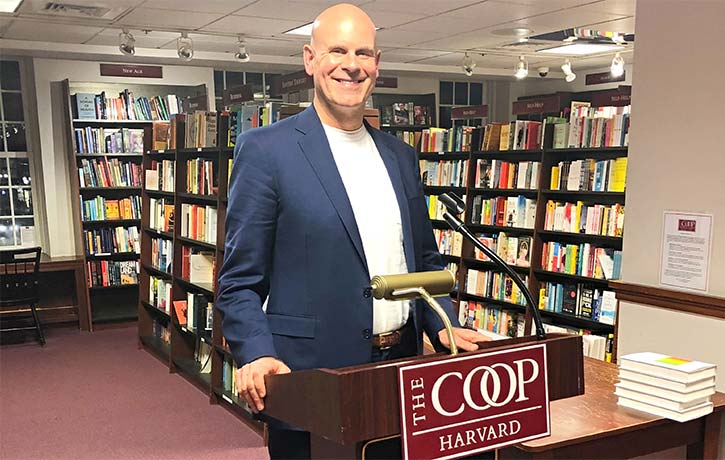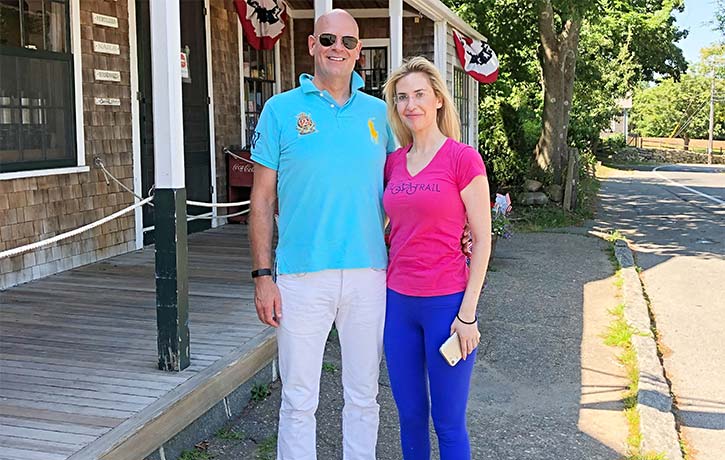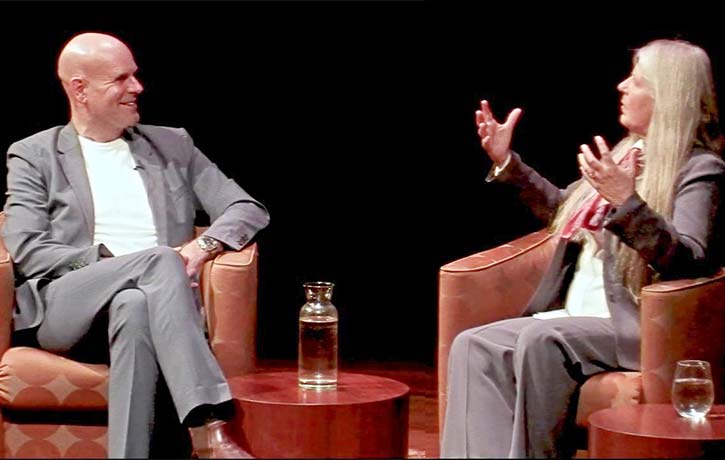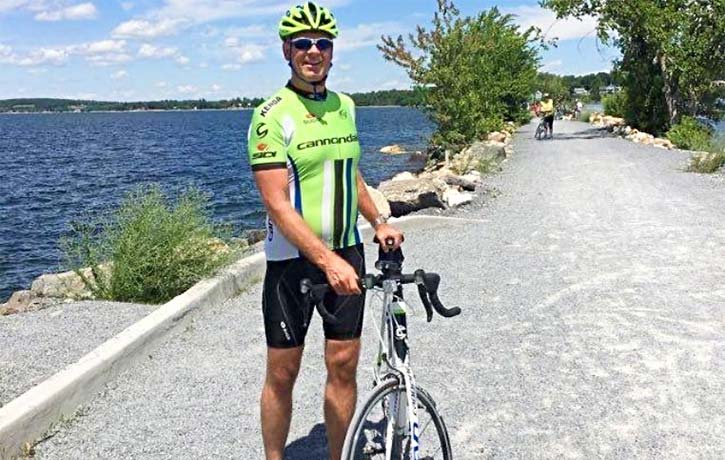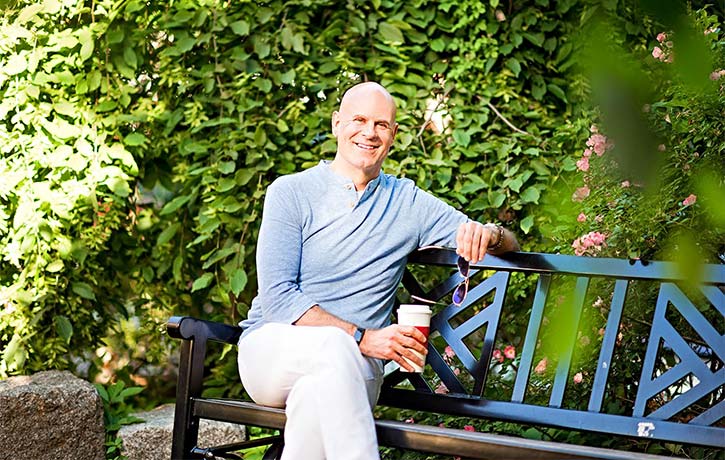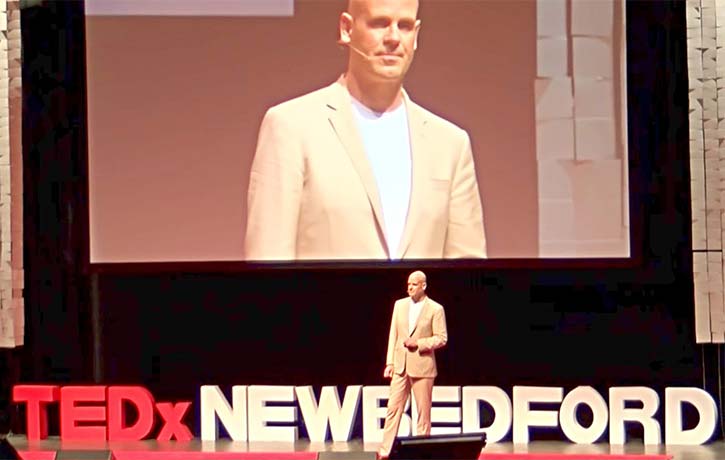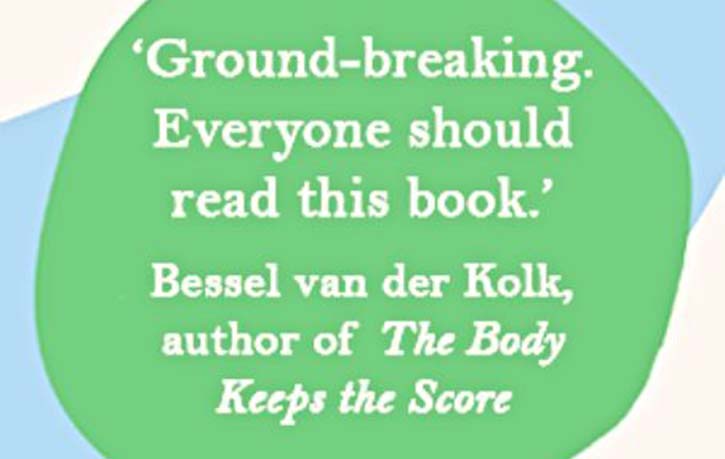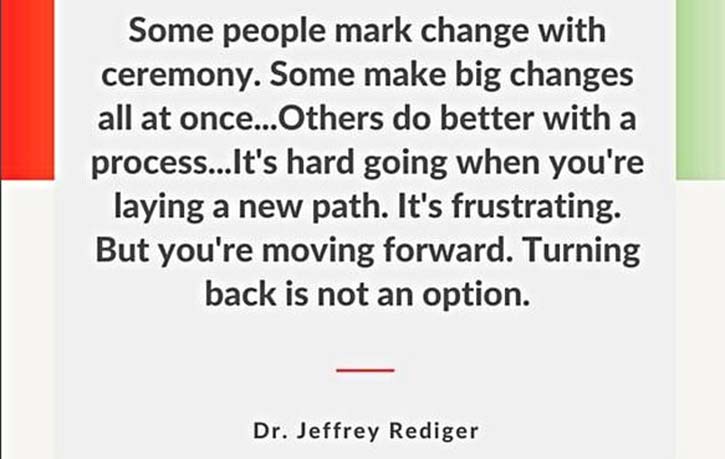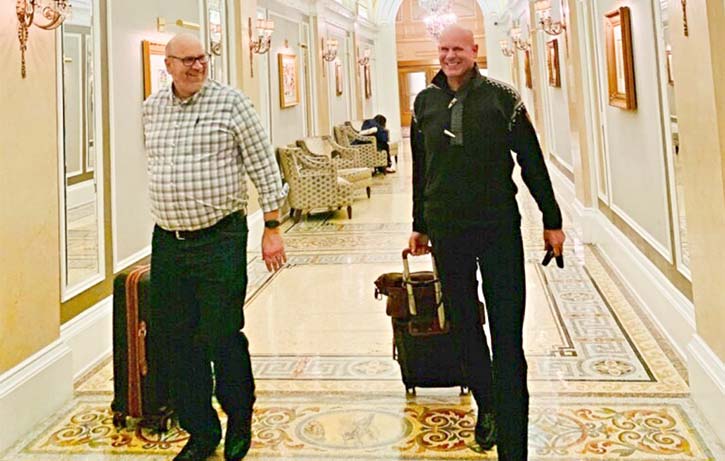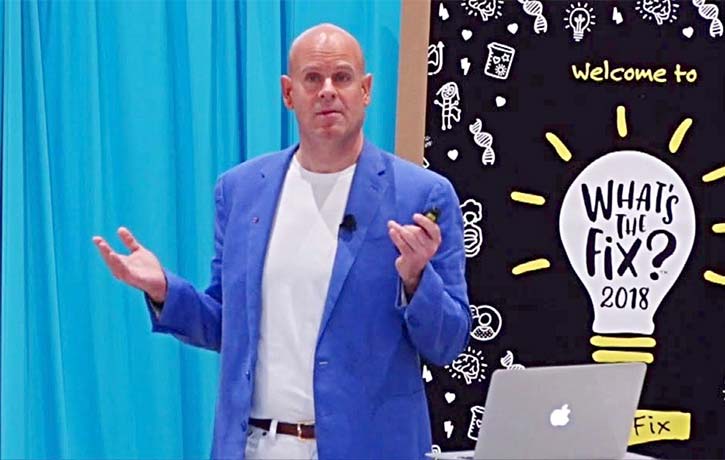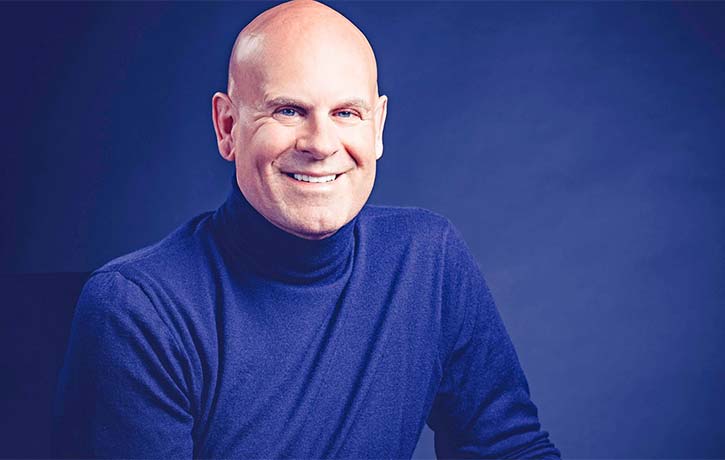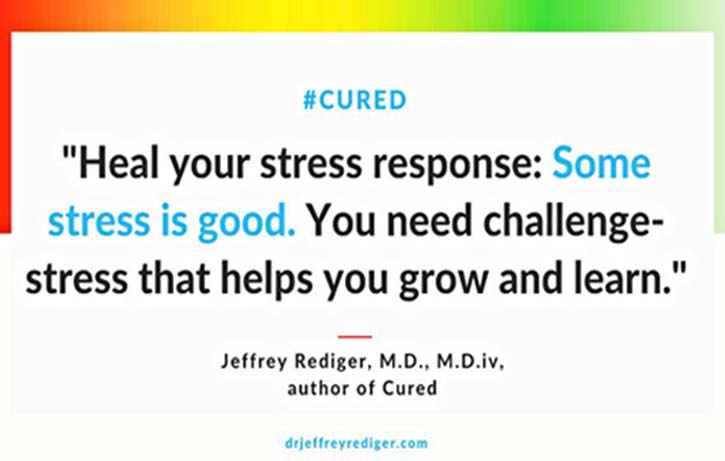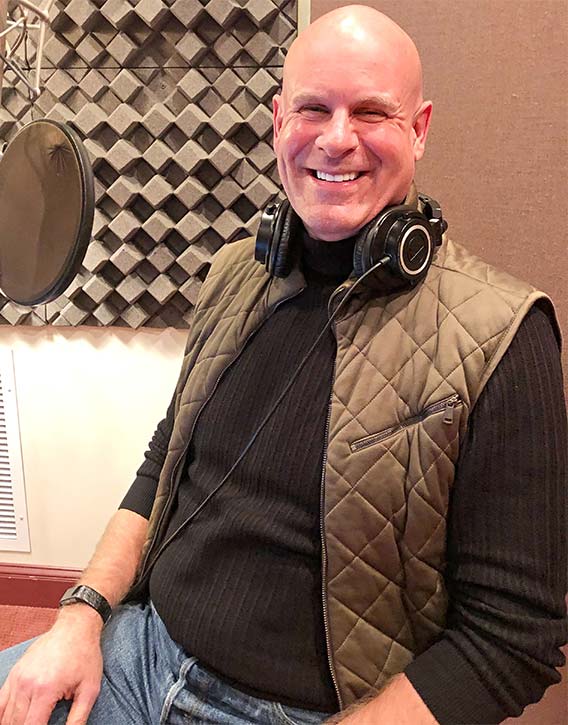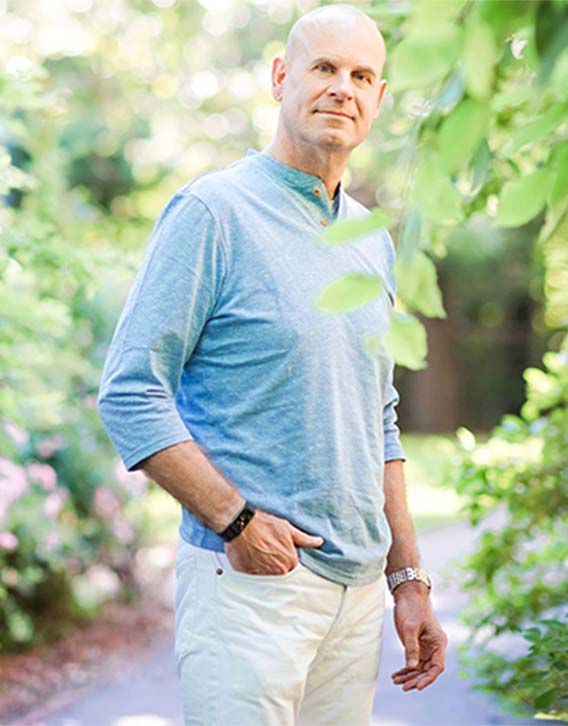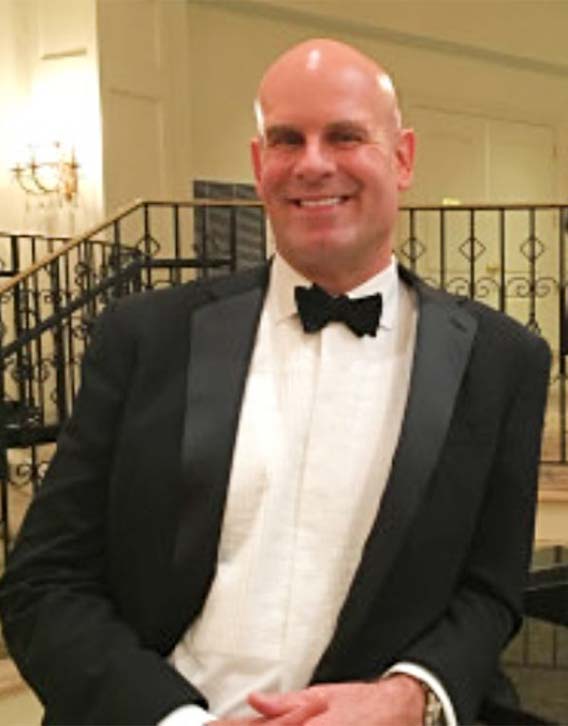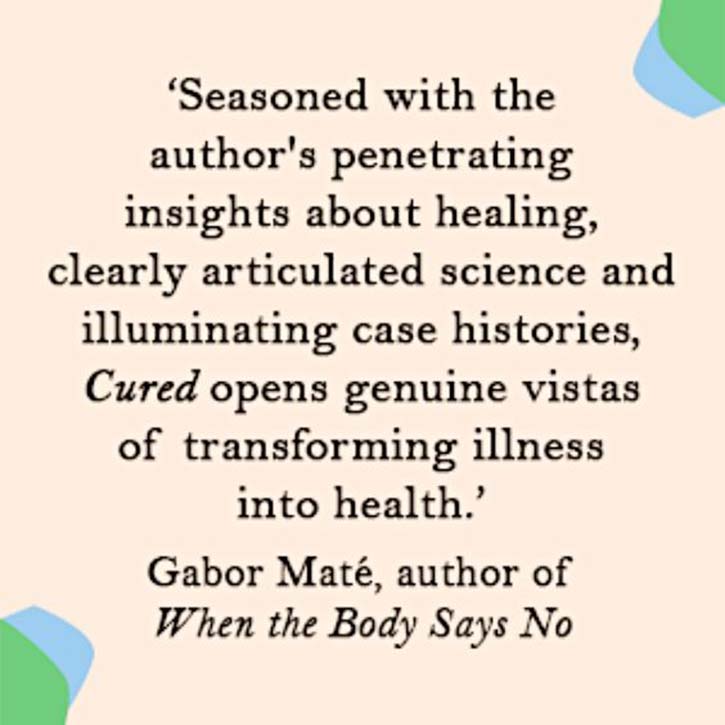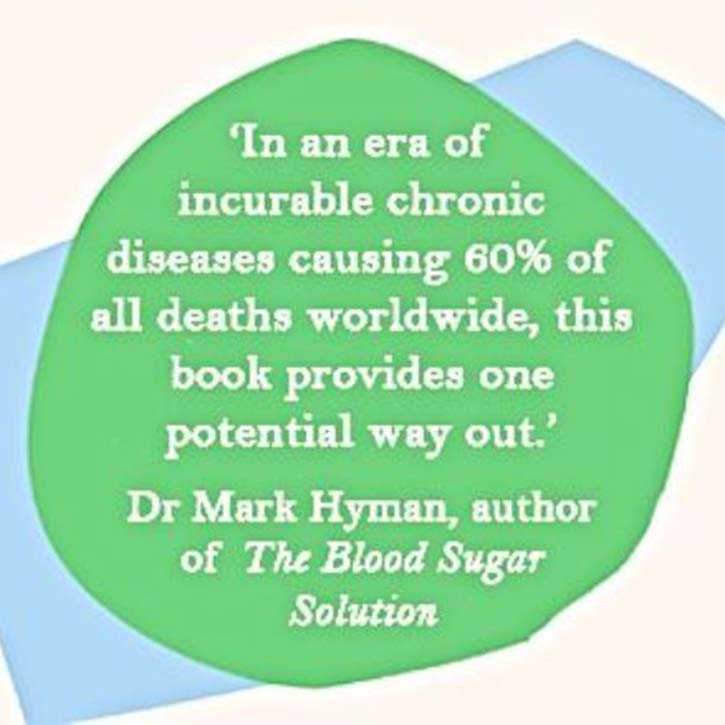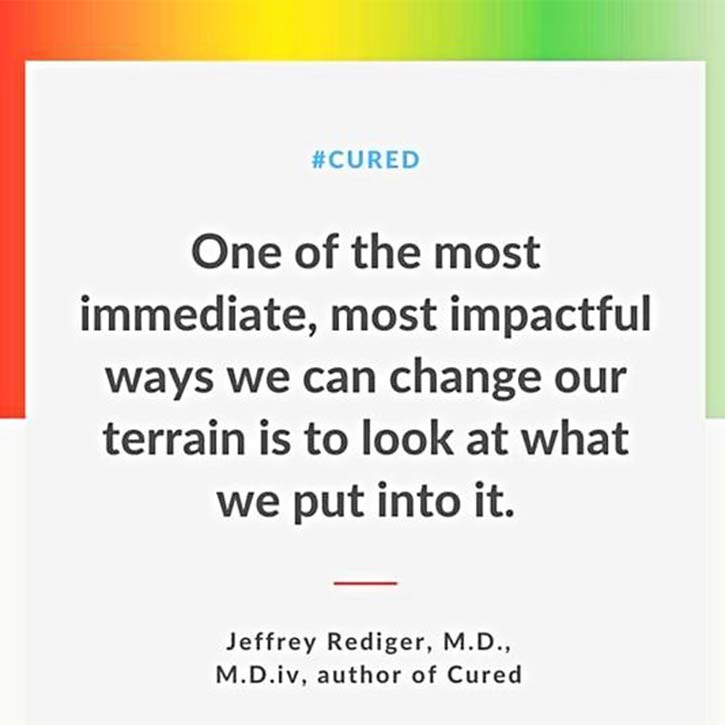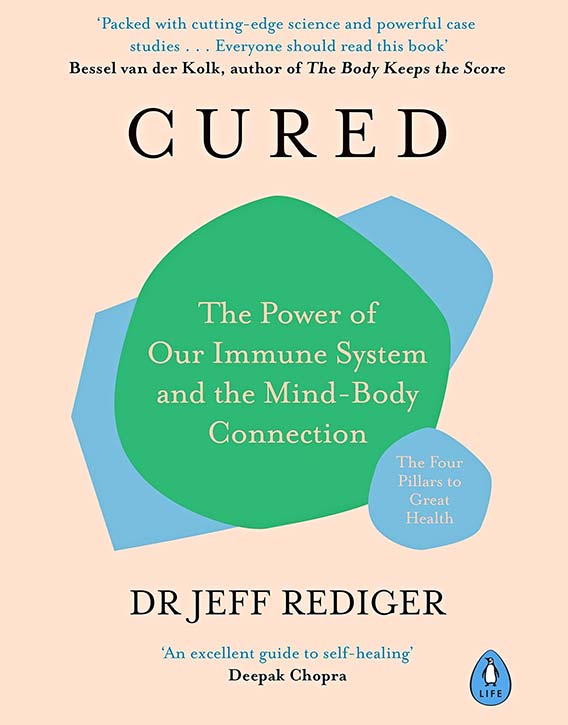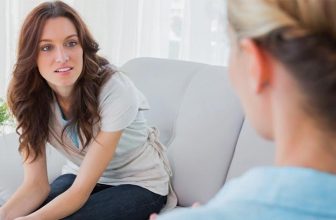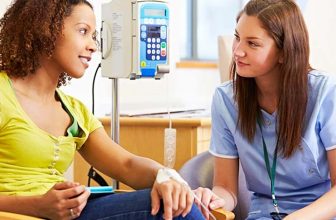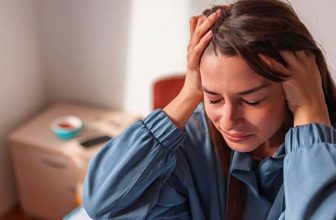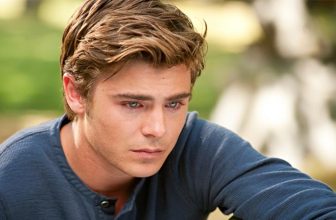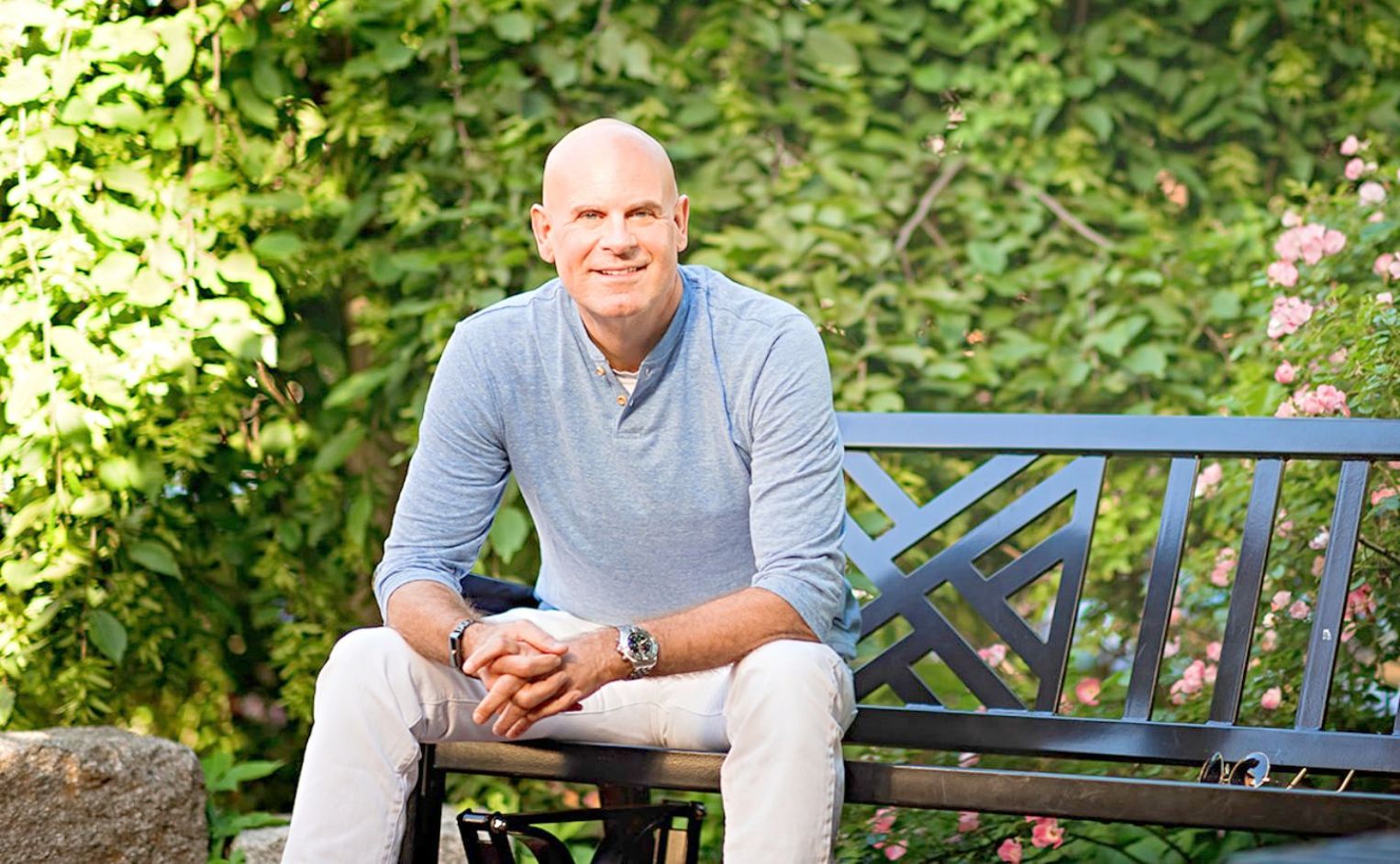
Dr Jeff Rediger, just as you might, has always wondered, why, in the face of illness, some people recover, and get better, and others don’t? Is it something we can consciously, actually do something about? In the aftermath of the coronavirus pandemic, massive waves of change are now on the health and wellness horizon – with an accelerating urgency akin to an impending tsunami. And let’s face it, it’s about time!
Dr Jeff Rediger M.D., is a world-leading psychiatrist, and medical director for the McLean SouthEast Adult Psychiatric Programs and an assistant professor of psychiatry at Harvard Medical School. He is at the forefront of the science and art of health and well-being using real life records of remarkable, “impossible” recoveries drawn from his own 18 years of research, which point towards unexplored possibilities dormant within mind, body, and spirit.
Coming from an Amish background, his questioning and challenges grew as he grew, leading him to rebel against a limited system to find better, more thorough answers.
Dr Rediger has a Master of Divinity degree from Princeton Theological Seminary and publishes in the fields of medicine, psychiatry and spirituality. His work has been featured on Oprah, Dr. Oz, and Ted Talks, and his book, “Cured: The Power of Our Immune System and the Mind-Body Connection” (published by Penguin Books) has gathered esteemed praise by some of the pioneers in the health field including, Deepak Chopra, Bessel van der Kolk, and Gabor Maté.
We had the recent pleasure of probing Dr Jeff’s vast mental archive laden with the ripe fruit of real answers, and discuss how spiritual wellness, and fulfilment are in fact an integral part of being human, and aren’t merely bestowed for survival, but for thriving! Dr Jeff now shares his stunning insights to shine a revealing spotlight on the entire way in which the healthcare system is viewed and practised. There’s no holding back (it’s time to blow the whistle!) so get ready to have 4 NAKED HEALTH TRUTHS laid bare in our exclusive interview with Dr Jeff Rediger!
Greetings Dr Jeff,
Welcome to Keep Fit Kingdom, it’s great to connect with you and we hope you’re keeping well.
If we can start off by asking what you think of our site?
It’s a beautiful website. I love your logo, it’s great with a lot packed into that! Great–looking articles as well as an interesting virtual internship offered.
Thank you! Our mission is to help a billion people reach 100 years of age happily and healthily, may we get your impression about that?
I love that! I mean, it’s what we need. There are so many illnesses, and 85-90% of illnesses that people suffer from are lifestyle illnesses. It’s just tragic that our doctors and healthcare system only make diagnoses and provide people with medications, yet instead, you guys are looking to treat the cause, that’s massive! People deserve to have their illnesses healed and not just tread water with medications.
True, medication only treats surface symptoms. Thank you for your kind words!
Background & Career
Okay, let’s start off with some basics: what started off your interest in the field of medicine?
I came from this very rural background as you know [Ed. Dr Rediger’ parents were Amish], and I had a lot of questions. I was living in a whole different world while attending public school every day, and at home at night, it was a very different and conservative culture.
That was confusing to me, the world views were so very different, which got me asking a lot of questions from a young age, trying to reconcile these worlds, and what was true. It was too strict for me, so I rebelled.
Then I went to college, which opened up my world. I’d also worked as an orderly during high school, and the nurses were really wonderful. They said, “you have a really good bedside manner, you should think about going to medical school!”
Interests in Philosophy, Theology & Psychology
That was something I’d never considered before. I didn’t pursue medical school when I was in college, yet I was having these burning questions inside. From the realms of philosophy, and theology to psychology, I was trying to figure out how to understand different world views whilst also trying to heal my own trauma.
Then I went to seminary after medical school, meanwhile asking these questions and at Princeton seminary, I began to realize that science is a wonderful gift, and that it’s not perfect, but there’s a lot of great things to investigate with science.
That is quite different from my conservative past, where science was the ‘tool of the devil’ and evolution was confined to God creating the world in 7 days!
So once I was convinced that science was great, I went to med school and that was a great balancing thing for me. To feel the balance in spirituality, science and medicine, that was the beginning of questioning: How do people heal? How do we heal illness? How do we heal trauma? It’s been a great journey for me since then.
Dr Jeff’s Academic Influences
Yes, I heard someone taught you to ask good quality questions, which ties in with our next question: Which 3-5 people have influenced you most from the medical and healing fields?
James Loder at Princeton seminary; he really helped me to understand that the quality of your question determines the quality of your answer. He was brilliant at teaching us about the quality of our questions.
Also Dr Richard Buchman, in my undergraduate days of haematology in Chicago, played a big role. Certainly Dr Leston Havens as well, he was psychiatrist and supervisor at Cambridge when I was studying psychiatry.
He was a good supervisor, very wise, and we wrote articles together. He was very compassionate, with a deep understanding of what trauma healing requires, and to see the whole person and not just the disease. I was very privileged to work under him and learn those things.
Also, John Mack and Judith Herman helped me begin understanding from different angles and perspectives, about what‘s required for healing and full recovery of both physical and mental illness.
- Giving a talk at Harvard
- Taking some quality time out
Key people on your path, linking everything up. What conclusions about health and healing have you reached up till now?
Well, over the last 18 years, I‘ve been collecting data and cases on those that have recovered from illnesses that are typically considered incurable. This has so changed my view on many things.
What I started to realize on my professional journey is that most illnesses can be healed, and when you set the conditions right, the body does want to heal.
85-90% of Illnesses that People Suffer with are Lifestyle Illnesses
In traditional medicine, we’re really missing the boat because, as you know (from material on your website too), most illnesses that people suffer from are lifestyle illnesses. And 85-90% of illnesses; heart disease, diabetes, cancer, auto-immune diseases, lung disease etc, are far more reversible than people realize – but we don’t even try to reverse these illnesses. [Ed. The operative word here is ‘try’.]
When I was in medical school, we were taught that these are genetic illnesses, and that there‘s not much you can do about them. Now we know that genes can be turned on or off by our lifestyle, the choices we make, by nutrition, by stress, by how we think, and the beliefs we hold.
So now of course, I see it so differently, and science is telling us that these are not genetically determined, that genes can be switched on and off.
Health is Actually More Malleable than You Think
So health is more malleable than we thought, although it will take some effort?
Yes. It is hard for each one of us to change! To change what we eat, and how we think about ourselves and to take out the false beliefs that prevent us from experiencing our value in the world, and knowing what it means to set up life to feel safe and have a purpose. That takes a deep level of change, but we’re more than capable of doing that!
We should exactly be talking about this, and I’m so glad we are!
Elon Musk’s Asperger’s Syndrome & His Unique Way of Seeing Things
Agree. I’m working on fulfilling my life purpose, working on two diagnoses I got a few years back: Asperger’s Syndrome and cataplexy (part of sleeping disorder narcolepsy), and working hard to get both of these limited labels out of my system. I use a combination of weight training, cardio and breathing exercises.
That’s beautiful! It’s important to understand, certain illnesses can also give us certain strengths and a way of being in the world too.
For example, Elon Musk, famous for his Tesla car company and SpaceX program also has Asperger’s. And many more are finding out that they have such conditions which can provide unique perceptions and produce special gifts in the world. There is also a lot that can be done to heal these things, often our traditional doctors don’t realize this.
Doctors Need to Focus More on a Patient’s Positives
So far, I feel that the stress component plays a big role here, next to the expectation that we have to conform to the school system. Jeff, what do you think teachers should focus more on now in teaching students of medicine, psychology, public health and well-being overall?
Doctors are taught to look at what is missing or what’s going wrong, which is needed, up to a point. We should look even more at what is going right, and with that, see the person, and see what is going right in their life. Help them to understand their value, and what is good about them, because that is what helps us find motivation to fix what is wrong.
- Dr Jeff with Dr Jill taking responsibility for the energy they bring
- Living life to the fullest is a choice
The truth is, we all bring something beautiful into this world, and it is just easier to believe the bad stuff, that we’re not good enough or that we’re defective in some way or damaged, but that’s not true! Every one of us has something so important and valuable to bring, and there’s nothing wrong with us, that can’t be fixed by what’s right with us!
We have centuries’ of practice on being just a human being; we’ve been focused on deficits, and that needs to change, we need to also see and emphasize what‘s right. So medicine needs to focus on what‘s right and not just what’s wrong; psychology should not just focus on the deficits of childhood, but also on what is right and good about a person, now, today. The same goes for psychiatry, which tends to reduce problems to merely neurochemical defects which isn’t effective either.
Combining Psychology, Religion & Medicine
When it comes to religion, that tends to focus on original sin rather than each person being made in the image of God. Everything disappoints: psychology, religion and medicine need to see what is right with the individual and not just what is wrong, that will change and heal a lot of things.
And we need to focus on how to heal illness rather than making a diagnosis, prescribing medication and thinking that’s all that can be done. That’s simply NOT true.
We need to combine these 3 together then?
That’s right, absolutely yes! And that‘s a really important point because we send a person with a medical problem to a physician, the person with a psychological problem to the psychotherapist and for spiritual problems to the priest, rabbi, or imam.
But the truth is, the real opportunity of healing is understanding how those all come together in that specific person’s life. You know, the body keeps the score! [Ed. “The Body Keeps the Score: Mind, Brain and Body in the Transformation of Trauma“, a New York Times bestselling book by Bessel van der Kolk.] And those challenges are reflected by and in our bodies. When we address all three aspects, a person can heal incredibly well.
Challenging the Status Quo Healthcare Paradigm
With that in mind, how much of a challenge is it going up against the status quo healthcare paradigm? What are the core tenets or principles of your health paradigm now – is it universal, i.e. in theory, can it be applied to the whole of humanity?
Well, that‘s a big challenge. A great deal of well-meaning doctors, nurses and nutritionists still don’t realize the wide range of possibilities that exist to really help people heal.
We need to focus our medical system in a completely different direction, where we move away from just these diseases and medications, and start to help people develop; their sense of understanding, value, and the purpose in life that is right for them. This is the beginning and end of true well-being.
Updating Healthcare’s O.S.
Indeed, both doctors and patients need an updated O.S. (Operating System) to begin with! Like Dr Jill Bolte Taylor mentioned in her book (I know you’re colleagues, and friends) “Whole Brain Living“, it’s no use to try and change behaviours if our character 2 (‘Abby’) is still dominant or pulling the strings.
Yes, true. And you’re completely right, her work is brilliant, and it carries many implications.
A Day in the Life of Dr Jeff…
Can you walk us through a day in the life of Dr Jeff Rediger, from the time you wake up until the time you go to sleep?
I get up early in the morning. On some days I do Intermittent Fasting, I have my mushroom decaffeinated coffee, which I love (it’s a really healthy mix of a few mushrooms like reishi, and chaga). Then I go to the hospital and do rounds, see patients, and take care of different things like podcasts or reading, that sort of thing.
And at the end of the day I take a run and lift some weights, reply emails and continue with the research that I’m doing. I’m starting to write a new book, so I spend my evenings doing those things. I also interact with friends, and make sure I get a good sleep. I eat healthily during the day, I tend to eat lunch and dinner, skipping breakfast works for me, but might not work for everybody.
Eating my two meals–a–day, 5 hours apart or so, works really well for me. I feel nourished, I tend to eat a lot, I love food, and this allows me to have two meals where I can eat a lot, and a wide window of hours where my body can go into a fasting state, clean out dead cells and all those kinds of things. Everybody has to work out their own pattern of what works best for them.
When being so focused, doing what you love, that also helps reduce the time spent thinking about food, right?
Yes, right, that has happened. I love working with patients, that is a beautiful opportunity, and also writing. Doing both, I think is a perfect balance.
On Dr Jeff’s book: “CURED”
So Dr Jeff, talking about your latest book “Cured“, what’s the main message you would like most for people to take from it?
I talk about the four pillars of healing the whole being:
1. Nutrition
2. Healing our immune system (very relevant for all illnesses, and now with COVID)
3. Healing our relationship with stress (some stress is good, but toxic stress is not)
4. Healing our identity and our beliefs (which is the biggest, and the most complicated one)
False beliefs prevent us from understanding our value, and experiencing the universe as a safe and benevolent place.
Strengthening beliefs that help us see what is right and good about us, and also helps us to not only take care of everybody else, but also to take care of ourselves. To do the things that put the light back in our eyes, this is what helps us experience well–being.
That takes a really different focus than what we’ve been told and raised to do – to really invest in our own well–being. It can seem selfish in the beginning, but it’s actually not.
Yes, I’m sure many people are familiar with that, putting themselves last. It’s not necessarily a feminine trait to want to help others, but definitely mothers tend to put their kids first.
It’s very true that many women often get ill in the role of being a caregiver for so many others, but not for themselves. That happens so often, I can tell you story after story, after story, about that!
It is a big shift when a person begins to realize; “Oh, I have value too and I need to invest into my own well-being”. Then it can feel so selfish, I tend to help people better understand the word ‘selfish project’, because it feels selfish, but it definitely is not! How can you give anything to others if you don’t first have it yourself?
By the time a person usually reaches this realization, it’s too late, not to mention they’re utterly worn out!
Yes! The body keeps the score, the body tells the story and it just begins to break down after a while when a person spends year after year, after year taking care of others instead of themselves. The body and the mind begin to break down.
Natural Born Killers: How to Defeat Them
In chapter 2 of your book, entitled “Natural Born Killers”, you talked about the case of Daniel where he made an incredible and complete recovery from an extremely aggressive form of cancer, after stating his ultimate life’s purpose, to get married and become an ordained minister. What is the relationship between decisions, the mind, and the immune system?
That’s a great question! There are many ways to get into that. When a person is in chronic anxiety – also known as Fight, Flight or Freeze – then the sympathetic nervous system creates an environment in the body that is actually toxic. So, you have stress hormones like adrenaline, norepinephrine and cortisol.
The Anatomy of Stress
Stress hormones are bathing the cells of the beautiful immune system. These stress hormones, based on what we now know from clinical and laboratory research, cause the immune cells to misfire and to leak and attack the host, thus beginning to attack the body instead.
Now they become the pathogen or the problem. That’s called an auto-immune illness, where the body’s immune system starts to attack the body instead of taking care of the problem. So cancer is an auto-immune illness, diabetes is an auto-immune illness, and heart disease is an auto-immune illness.
- Take some time out for self love
- Dr Jeffs Ted Talk
We don’t think that most illnesses people suffer from are related to the immune system, yet so many are! Chronic inflammation develops in the body due to these kinds of stress hormones. Chronic inflammation is a sign of an immune system gone awry!
A person does not have diabetes, heart disease, auto-immune illness, cancer or lung disease, the real illness is inflammation of the body, and then it’s just a matter of time which body part breaks down first because of this chronic inflammation.
So if you want to heal those illnesses, you need to treat the inflammation, and not just take medication.
So stress is the first sign, then inflammation.
Yes. Those stress hormones cause inflammation when they are dripping onto the immune system, day in, and day out.
The Role of the Mind in Health
Corrosive. Are you able to give us a brief description of the anatomy of the mind? We seldom see the subject of the mind talked about.
Well, there are different ways that we can talk about this. And certainly Dr Jill Bolte Taylor’s discussion on the anatomy of mind is brilliant. It’s the first work I’m aware of that has ever linked brain, mind and behaviour to the level that she did. So that’s a brilliant map.
Her work paints a neuroanatomical picture, helping us understand different cells within us. We live in a very left–brained culture, it celebrates the use of the left brain, but there are other parts like the more feminine right brain, it’s really very important to activate it more.
It helps us to see what‘s right about people, it’s more about well-being, connected to our right brain amygdala.
Dr Jill Bolte Taylor does such a beautiful job of showing us, neuroanatomical, how these different selves are there, and are available to us if we become aware of them and use them more often.
And get out of our own way…
Exactly! (Both laugh.) Yes, we’re not just analytical, logical creatures, we’re also intuitive, soulful creatures, and we need to have respect for those parts of ourselves as well. Give them room to be.
I’m quite empathic, and tend to be sensitive to the vibes of others, and even though I love to be around people, I also notice it can drain me.
It’s interesting to note that the introvert brings such a complex, beautiful inner world into the world for the rest of us, and we need more of that. Because they’re wired differently, they can help to solve certain problems, since they’ve reflected in a unique way for so long. They have that kind of gift to give to the world.
Dr Jeff’s Shocking Medical Findings in Brazil
Thanks Dr Jeff, on behalf of all introverts reading this! So you talked about your research into healings reported in Brazil and then actually went there yourself to investigate. What did you take from that experience?
Yes, that’s where everything started, 19 years ago. My first trip was in 2003, and it was really a life-changing sort of thing. We did research and collected medical evidence from different cultures.
Even though they may use the same words, they can have a different meaning, and world view attached to those words. That was really interesting to me, to begin to understand and see things from a different cultural background. They bring mind and body together in a way that’s very different, and it’s more natural than how we do it in the United States.
How Your Personal Perception Influences Your Reality
To begin to see how influenced we are, I’ve seen for instance, in Brazil, people being cut open with a knife while they were just standing there, having tissue removed and having eye surgery, without use of anaesthesia! The mind is so powerful.
When we view things from a different perspective, it can be quite shocking as well as liberating. There are so many possibilities and powers within us that we’re just not aware of (yet).
Indeed. You wouldn’t expect anyone to undergo surgery without anaesthetic, unless you find yourself stuck on a desert island or something!
Yes. We’re deeply influenced by our mind and perceptions, and have this whole set of huge possibilities within us that we just don’t think we could develop due to the culture we live in – so it is really good to be exposed to different cultures.
Controlling Our Own Immune Systems
You mean certain cultures lean on their own storehouse of ancient wisdom; they seem to know so much more?
They do! That ancient wisdom, and to pair that with modern science, in a way that doesn’t reduce one, nor the other, is massively liberating.
It would be great if more folks could join hands on this point. So, in your book, you talked about Jedd Wolchok, an oncologist and immunotherapy innovator at the ground-breaking cancer clinic, Memorial Sloan Kettering in NYC, who said that spontaneous remissions are, “either divine intervention or the immune system.” Does that mean we can or can’t influence our health through our immune system? How do we control our own immune systems?
That‘s a great question! I think there are different ways to discuss this. A good way is to recall how germ-theory evolved; the work of Louis Pasteur helped us begin to understand and identify germs etc.
Referring to the part in your book on bacteria and soil?
Yes, and he was in a deep debate with a few others, through the rest of his life. The version of the Germ Theory that Western culture has adopted, is the idea that “the germ is the cause of disease”, yet there is this whole other view that we have millions of bacteria and viruses, inside and outside of our bodies, and the only time something invades, is if something breaks down the immune system.
I think we need both views of the Germ Theory, and not just to think that germs are the problem. Antoine Beauchamp had deep discussions with Pasteur about this, so he drank a glass of cholera (the choleric plague killed hundreds of thousands of people) in front of his class and he said, “I know how to take care of my terrain.” (which we now know is called the microbiome.) “I take care of my immune system, it is healthy, so the pathogen cannot kill me.” And it didn’t kill him, he knew how to create a healthy immune system!
We’d do really well to study and show people how to heal the microbiome –how to heal the immune system– so people do not suffer from these illnesses, and thus also not be so vulnerable to Covid!
In the States especially, you can’t get a discussion started about this stuff at a national level. That is bizarre because millions of people have suffered from Covid, and from chronic illnesses or infections, and all we do is throw antibiotics at them, instead of helping people to become really healthy.
3 Most Important Insights Gained from Writing “Cured”
A lot surrounding Covid is controversial globally, no matter what one’s perspective is, and the debates are endless. So Jeff, please tell us, what are the 3 most important, and valuable ideas you’ve distilled through the process of writing your book?
It’s been life–changing for me to do this research. Certainly getting a true understanding of nutrition instead of all the fad diets. I guess the trifecta of industry; which pays the academics to do studies that they paid for, and get certain results, or sign off on, certain results. So in the industry the academics interact with the government, and the food lobbyists that’s the food pyramid that has been constructed here. There is so much that isn’t really good science.
Science then is really business, and it’s partially true and partially false, which creates massive misunderstanding in Western countries about what good, real nutrition is. There is also a lot of focus on supplements instead of whole foods and plant–based nutrition, which clears minds and heals bodies.
Stress: Toxic vs Healthy
Nutrition has been a good one for me, certainly in healing the stress response and knowing the difference between healthy stress and toxic stress.
For instance, I run a lot and I want to run a marathon some day. Running can be stressful, but it’s healthy stress because even though it causes some muscle breakdown, it regrows them stronger. And that is really different from being in a toxic relationship of finishing work every day, depleted and run down, crossing through your value and worth. Good stress is great and we all need help expanding our higher selves and learning how to manage more stress in a healthy way: that’s healthy!
- Everyone should read Cured
- Once a new path is chosen theres no going back
But if a person can’t leave a toxic stress scenario, then they need to either leave or change their environment, or change their response to that environment, which is a big topic in itself too.
We need to get outside of our comfort zones to be able to grow.
Absolutely true, every one of us needs to. And the third thing is learning to heal our identity, healing our beliefs. Doing the work that helps us experience beauty
and finding a way to experience the world as safe and benevolent towards us. Then we can set up a life where we know our value, can get connected, share our love in a deeper sense; to experience unconditional love.
It’s easier to just be critical and hard on ourselves, to see what’s not right and to think we’re just not good enough.
We need to seek that inside of ourselves first.
That’s right, to find fulfilment inside ourselves, to see that there is so much inside of us, that we’re not even aware of yet.
The Power of Decisions Over Your Health
In your book you gave the example that biological twins who have 99% identical DNA, still have different outcomes or levels of health, depending on their own inner psychological processes. Is this akin to the case of Daniel discussed earlier (see above “Natural Born Killers: How to Defeat Them”), saying that a person’s decisions have a greater impact on health and life than thought?
Yes completely. Our decisions, our beliefs, our combination of true, false, conscious and unconscious beliefs, all have a massive and much more important role in our lives than traditional medicine understands. The research is really clear that this is true.
It’s hard to give it numbers though, to make it more tangible. People will not believe unless they experience the power of decisions first-hand for themselves.
And we’re not just numbers, none of us are numbers. A person who gets told they only have 6 months to live due to their illness, will probably find many things to activate that help them find a path.
What was your first experience with spontaneous healing? Is there any rational explanation?
Well, because of the privilege of listening to all these stories for the last 19 years, beginning to see what is possible and what can be healed, I have such a different mind and body myself now. I have completely rebuilt who I am, in a way that I’m now much healthier than I was 20 years ago: I weigh 30lbs less, and back then my cholesterol, blood pressure, all those numbers were going up.
Listening to all these stories over the years has completely transformed my mind and body thus removing me from the worry of that old kind of past, so now I feel very grateful. I won’t get any of those illnesses that so many of my friends unfortunately are starting to suffer from.
Indeed, knowing what is right, and what we actually need might be difficult to follow, as it may entail things we‘re not ready to face, yet. Of all the concepts discussed in your book – diet, mindset, and altering stress response; which would you say is the most essential?
I think it can be different for different people, because all of us are different. Certainly nutrition is a big one, how we relate to stress is another major one. The one that I have seen over and over again, is the most powerful one pillar that people cry most often about; healing our beliefs and our identities so that we experience ourselves with compassion, rather than judgement.
True Health Involves Eliminating Toxic Thought & Food
Before we embrace that kind of thinking, we will often be quite toxic towards ourselves.
Yes absolutely! I can tell you stories about people having this realization, “Oh I have been pretty toxic, putting toxic thoughts and toxic foods into my body for my entire life!” Once a person realizes that, and stops putting toxic thoughts and toxic foods into their body, the results are often shocking. I can show you before and after pictures so you can see how dramatic it is, you won’t even recognize people! It can be such a big thing.
- Chase your dreams
- Whats the Fix with Dr Jeff on YouTube
These people could be walking down a street where they’ve been living for years, and people won’t even recognize them any longer! And sometimes they’ll change their name, to validate and honour how deep the change has been. It’s so moving, and really emotional to see.
I can imagine the change is about far more than just losing weight, but also about getting that ‘spark’ back in their eyes.
That’s right, there’s a light in their eyes, they’re happy now, they don’t need medication in the same way, and the weight just drops off. When the soul feels loved and liberated, so many changes can occur, and it’s a privilege to get to document these stories.
Is this the same as “taking your power back”?
Yep, that’s right!
More Significant Health Story Case Studies
So Jeff, what is the wildest “miracle” you’ve ever seen in a patient, either yours or from around the world?
Hmm, that is a really good question. There are so many stories that have touched me deeply. There’s the story about Claire, who had been diagnosed (by biopsy) with pancreatic cancer. Her humanity, the journey she went on, the deep changes that she made, and the website she put up to help other people around these things certainly touched me deeply.
The physician, Dr Patricia Cane, who was diagnosed with pulmonary fibrosis, and her path of going from certain death, and disability not being able to absorb oxygen into her lungs, to now being so grateful that she was healed. She now does home visits for people that are so ill that they cannot leave their home, and that’s her way of expressing gratitude, giving back for what she’s been given by the illness.
These stories just deeply impact me, because they’re so emotional for people. I get to witness and document these cases, and it also inspires me to continue making more changes in my life.
The First things Dr Jeff Would Change in Western Medicine
Jeff, if you could change the way western medicine is practised, what would be the first thing you would change?
I talk about western medicine as an analogy. I’d say western medicine is like having a lot of ambulances at the bottom of a cliff. When people fall off the cliff, they take them to the hospital or clinic. They are brilliant at fixing broken bones, doing surgeries, these kinds of things, but wouldn’t it be so different, if we had guardrails at the top of the cliff so that people didn’t fall off in the first place?
The people I studied, with remarkable recoveries, did fall off the cliff, but they found some ladders that allowed them to climb back up to the top. But that’s hard work, really hard work! The saying, “An ounce of prevention, a pound of cure” is really true. Once a person falls off a cliff, it’s really hard to change these disease patterns, and so much more work needs to be done.
And the same pattern that these people used to climb back up the cliff; those ladders are the same pillars that keep people from falling off the cliff in the first place! They are much easier to apply, and I wonder if it needs to be nearly as rigorous if you don’t fall off in the first place!
That’s why these pillars of healing and well-being are so important. The biggest change I’d like to bring about in medicine is, we start to study healing, how these people heal, and not just start medications. And we help people to experience what is right about them, we help people experience their value, dignity and goodness.
If we can do those two things, study healing and help people heal, (understand their value and what’s right about them) and not just look at the disease, these I believe, will fundamentally change healthcare.
A Fresh Approach to Cancer
No good simply focusing on the illness otherwise we get more of the same! How do you think we could incorporate what you’ve learned from spontaneous healing into today’s oncology treatment plan?
Well, when a person is diagnosed with cancer, it would be good for them to know they have more options than merely just chemotherapy. They have the option of beginning to treat their body with love, and eat nutritious foods instead of the processed foods that are often contributing to the illness.
If you have a fully functional immune system, it’ll be far more likely that you can catch the genetic mutations and get rid of them before they become cancerous. So, there are all kinds of things that a person can do to begin to get their body to work in tip-top, and efficient condition; more than just taking chemotherapy for cancer.
That also makes me wonder, what is the hospital food diet like; food is supposed to be medicine, right?
The diet served in hospitals is not good! It is getting better, some hospitals are waking up to the effects, that the meals need to be more nutritious, but way too often, hospitals provide unhealthy foods.
It’s just more of the same processed foods that people are getting sick from in their regular life outside hospital – it’s awful, we should be modelling something way healthier here.
On Health & Fitness
Where do you think exercise such as cardio, as well as resistance (or weight) training comes in, in terms of endorphin or endocrine system release?
Well, the great thing about cardio and weights, is that they activate the healing hormones and neurotransmitters in our body.
For me, running is great, I feel great. It causes more secretion of serotonin, the feel-good molecule, and oxytocin, the love molecule, and helps me be more connected to people. Also dopamine, the pleasure pathway is activated by me whilst running.
All neurotransmitters are good for the body. They straighten out the immune system, and the immune system begins to work more efficiently. And the cells, these brilliant cells, begin to do their work more efficiently. So I’m a big fan of healthy exercise, but not in a way that overdoes it, which causes the body to break down. I really do believe that healthy exercise is fabulous for mind and body.
How Dr Jeff Stays Healthy
How do you like to keep fit, and stay healthy: physically, mentally, and spiritually?
Mainly through weight lifting, running, biking, among other things. I also eat a really healthy diet, which I love. When you eat healthy, it cleanses your taste buds.
The spiritual path is important to me, I do a lot of reading and being contemplative more so than doing meditation per se. It’s a kind of deep reflection with reading and journaling. That is a big part of my life; reading, contemplation, affirmation, sometimes meditation. Those things work really well for me. They have healed me in a lot of ways, and continue to do so.
I can imagine, you’re always smiling for one thing, and having learned to ask questions is a major tool in reflection, for sure. What breathing techniques do you practise?
For me, learning to breathe from the belly rather than the diaphragm is a lot deeper. I also learned to only use nasal breathing when I run, so my mouth is closed and I breathe through my nose. That makes a big difference. There is some research at Stanford University that the better athletes do this, and it leaves you with less of the fight or flight reaction and puts you more into a parasympathetic state.
The most amazing thing was that almost immediately, within a week or two, all snoring stopped because it accessed a deeper way of breathing. I don’t know exactly how it works, but when you do it, you have to pull the air into the narrow nostrils and through the nose – it’s a very different kind of breathing.
So you have slower breathing while you’re running, but you’re taking in breath (oxygen) at a much deeper level, or more slowly, instead of the fast breathing we do when mouth breathing. And it’s amazing that it completely fixed the snoring. There are probably a lot of couples reading this that would like the other to start nasally breathing while they run! (Both laugh.)
- The ever smiling doc
- Heal your stress response
Snoring is detrimental for most relationships, and breathing is highly underrated as a tool.
Yes. Yes it is!
On Diet
What is your favourite, perhaps plant-based home-made dish?
Oooh, I LOVE food, there are so many favourites! I make these great smoothies on most days which I do love.
I’m very busy, so I do not spend a lot of time cooking. I buy a lot of organic frozen vegetables, which are very easy to heat up at night and put spices in. And sometimes I have a piece of wild, caught salmon, though not that often.
Since I’m so confident in how healthy I am now, I am a little bit more flexible when I’m with friends. I eat very little sugar these days, very little oil, and also very minimal processed foods, very little salt, and my body loves that.
Now it’s basically pretty easy, when I go to restaurants, I know how to order what I want, that is healthy, and it took me a ton of education. Initially I had this huge learning curve even though I had been to medical school. Once I educated myself on genuine nutrition, beyond the fad diets, I can go anywhere and get what I need, and still enjoy food with my friends. It works!
Role of Yoga & Meditation
How do you think the landscape of healing will evolve in the next 5 years? Do you see energy work as the medicine of the future? How about thought as medicine, do you think that is a possibility?
I think we’re going to see a lot of changes. I’m most interested in the democratizing of medicine, instead of the doctor being the expert of a person or our body, to help people begin to discover the wisdom that they have within them already.
This will help them begin to see their relationship with their story: what is going on in their lives, what the deeper story is, and what the body tells them, because the body keeps the score.
Like my friend Gabor Maté says: “If you don’t know how to say NO, your body will say it for you!” And that’s a very deep truth.
That’s deep. Do you think meditation influences or affects health? If so, how?
There are many kinds of meditations, and each should find the ones that are right for them. I’ve seen amazing stories.
One story is about a woman who’s been through a life of abuse and rape while she was young and she had a really dramatic childhood. She then started using drugs and heroin, had been through two marriages, divorce and such things. Twelve years back, she had finally become open to psychotherapy and she worked at it. She started to also visit a yoga group. At a certain point she was in Child’s Pose, and she had this realization that felt like the curtains parted.
She realized: “Oh, I’m not this defective human being”, she was only as bad as she thought she was, but in reality, she is fine, and worthy of love, and acceptance. That realization, in that Child’s Pose, was so deep and shocking to her that she had to integrate that new understanding of herself, and her life.
By the time I met her, years later, she had her husband sitting beside her, who adored her and she had this career that had gone from success to success, all because of that realization that she’s not any defective individual. Yoga got her to a point of experiencing that.
So, whether one realizes it over time, or like she had, very quickly, it’s still the same process and the same truth. There are so many stories where yoga has had that kind of effect, because yoga is about what is right with people.
It teaches way beyond the exercise, that every person is already perfect, already whole and complete, indestructible, and immortal. The soul is immortal and even exists beyond time and space, and that is who we are – we’re not just our bodies. Our body is just a thin metaphor or a reflection of what the deeper self or soul is trying to learn and that is amazingly healing for people.
Tips, Advice & Insights
Based on the number of people you’ve taught and interacted with over the years, what would be your top 3 tips to live happily and healthily to a 100 hundred-year goal?
Good question! I believe that healing our relationship with nutrition, healing our stress, our response to stress, and knowing how to do that. Knowing how to process our deeper beliefs -conscious or subconscious- kicking out our false beliefs. Strengthening our true beliefs so that we can see ourselves with eyes of compassion, love, respect and dignity, and eliminating any belief that gets in the way of that!
An awakening…
Yes, I do think we all grew up with true and false beliefs that we picked up along the way, from kids in the playground, from our parents, from teachers, from bosses, from colleagues. And some of these beliefs are false and untrue, and you have interpretations, so you will have mixed results in your body, in your mind and in your life. Some combinations of beliefs are true and others are false, so you get mixed results in various areas of your life.
What’s your best energy management tip to quickly shift a low mood?
For me, what works is to have a little time for meditation, reading or journaling. In a sense recover what is true. Spending a little time, giving myself some emotional or spiritual nutrition in a way that I feel restored. For me, that’s meditation and books – that’s a lot of spirituality. I read a ton about spirituality and psychology.
Fun & Leisure
A few quick fire questions now…What’s one geeky thing about you that people don’t really know?
That’s a good question. I love animals, and I truly do love activities, I do a lot of running and biking. I just love being out in nature. There are wonderful wood trails where I live, where I can spend forever. Boston is a big city, yet there are these great wooded trails, that are just wonderful for running in. Yet, what would be a geeky thing, I do read a lot, I’m a big reader!
What are some of your other hobbies?
Apart from being active, and reading, I love taking care of animals. Growing up on a farm of course I did a lot of that.
Favourite music?
I have a lot to learn about music, as I was raised in a culture where it wasn’t even allowed to listen to rock music, for example, so when I was in the school bus I needed to not to listen to the words. It took me years to listen to music again.
People I knew growing up, went to concerts, learned music, listened to music on the radio, bought albums. That didn’t happen for me, that developed later for me. Basically music is the language of the heart. It is a beautiful way for people to express their heart.
A lot of ‘pop’ lyrics do not fit the Amish, or Brahmin mindset!
That’s so very true, absolutely! (Both laugh)
Movies?
I was not allowed to see movies either, so there were a lot of movies that I didn’t see, as a teen, which a lot of people did, growing up.
Over the years I’ve started to become more aware of the beauty of different movies, television shows and those kinds of things. There is an incredible creativity expressed through these things, and you can say far more in a story in a movie, than you actually can in a book, in many ways.
- Dr Jeff radio interview
- You are your choices
- Being happy never goes out of style
In many ways, books give our imaginations more space…
Yes, and that’s more the way that I’m wired. In a lot of ways, when I have the choice I will pick up a book instead, because it’s such an internal and imaginative thing. It’s just very enjoyable.
What are your top 3 favourite books that have inspired you most so far, whether in the areas of health, science, self-development or spirituality?
I’ve read “The Four Agreements” [by Miguel Ruiz] recently, which was absolutely fabulous! That’s a great book. I’ve read a book years ago that I want to re-read, “The Alchemist” by Paulo Coelho, I thought that was outstanding.
There’s an esoteric book, that changed my life so many years ago called “Being as Communion”, by John Zizioulas, an esoteric, Eastern Orthodox theologian.
What really changed my understanding about love is, “The Little Prince”, it’s a great book! John Zizioulas put in a footnote that, “The Little Prince” by Antoine de Saint-Exupéry, is one of the finest ontologies of love in western culture. I thought that was really quite a recommendation and that’s why I read it.
I was also quite deeply affected by “Les Misérables” by Victor Hugo. The universal humanity that he captured in that book is just shocking. The struggle between the more fundamentalist view of the world, versus a more human, legalistic, more loving way of being in the world. It left an indelible imprint on my life; I was never the same again after reading it.
Reflections
What’s your proudest accomplishment so far? What dreams do you still wish to achieve?
My proudest accomplishment is that I healed in many ways from a difficult and traumatic childhood. I’m not completely healed, there is still a long way to go, but I’ve made so much progress.
This research helped me to do a lot of that, to see what these people changed in their lives, on such a deep level. That they’ve become awake to a sense of their own value, and importance and what it took for them to heal their nutrition and their immune system, so that was a big thing. And my long path through education, seminary and all that, was also a part of my own healing.
I think, what I want to do next is, in this next chapter of my life, is bring about an era where we actually study how people heal. I went really deep into studying Taiwan, and how Taiwan did during the Covid pandemic. And it’s shocking to me, it’s such a small country, with 25 million people; and which, by all expectations, should have been a big hotspot for Covid, because they’re just across from mainland China. They had moderate interaction, with population going in and out of Wuhan, where the virus originated.
They’re so densely populated, yet, for most of the pandemic they only had about 7 deaths and they never needed to shut down their economy. They never had to close their restaurants, or their schools, and they only had 7 deaths!
I went very deep into what they did differently, so that’s a big topic. They began to heal democracy, they upgraded their democracy. It began earlier than 2016 – they started with software developed in Seattle – where they build upon what people agree on. It turns out that all of us agree on far more than disagree!
They’ve been experimenting on how to improve democracy in a digital era, and I’m really interested in it. I want to participate in helping our country, and our world. Begin to heal democracy, so we don’t have such polarizing social media, polarizing government, polarizing TV and commentators. I think we’ve got to begin to do this differently. Then we can heal our immune system so much better.
What Dr Jeff is Most Grateful for
That’s definitely a worthwhile pursuit! What are you most grateful for?
I’m so grateful for all these individuals that shared their life with me, and shared their medical events. I was a slow learner, but I slowly pulled into a really different way of looking at health and healing, a very different way of seeing myself, and also of seeing other people. I see myself and others for what’s beautiful about us, and these stories changed my life, personally and professionally, on every level. So the one thing that I’m most grateful for are these inspiring lives, these people that have let me into their lives so I can understand what kind of changes they made and why.
- Cured opens genuine vistas for health transformation
- Cured offers a way out of disease
- Upgrade the property of your own mind
Dr Jeff’s Favourite Motivational Quotes
Enriching stuff! What’s a couple of life quotes or motivational sayings that inspire and motivate you to be and do your best?
For me, I tell my patients; “You bring a lot of good into the world”. For me, that’s very healing, people need to be told that! And many never get told that, and that’s a really big one.
“The body keeps the score“, is a really good saying. People begin to see that; “I don’t just have an illness, my body is trying to tell me something! What’s the message my body is trying to send? What’s the message my mind is trying to send, is it anxiety or depression? Is there something good here?
Should this just be medicated or is there a deeper message here; that something is out of whack in my life, that needs to be addressed? If there is an illness, what is my body trying to say? What does it tell me that needs to be healed, or balanced in a different way?”
When Gabor Maté says; “When you don’t know how to say NO, the body will eventually say it for you!” I think that’s a beautiful quote, and a very deep, and true statement. We should be teaching our patients to ask those kinds of questions!
Dr Jeff’s Message to Keep Fit Kingdom Readers & His Followers around the World
Profound words. Finally, what special message would you like to share with Keep Fit Kingdom readers right now, and those that follow your work around the world?
Honor yourself, well enough to take your own health and well being seriously. Don’t take so much time taking care of everyone else, that you forget the need to show real compassion for yourself, and to focus on your own well-being. That often means to set different boundaries in relationships, and/or with your work.
I can’t tell you how many people are diagnosed with cancer, or another fatal illness and at one level they’ll be terrified they’re going to die whilst there’s another level saying, “Oh, I guess I don’t have to go to Law School because my dad wants me to.”
There becomes the possibility of a new life, and sometimes time seems to go by and they have this better life, far more suited to them. It’s shocking to see how this stuff works!
Thank you, Dr Jeff, for your generous participation, and going beyond the call of duty to share your unique insights with us, in this interview!
We hope you found this interview with Dr Jeffrey Rediger thought-provoking, eye-opening as well as practical.
Check out our review of “Cured” (by our in-house oncology nurse at Memorial Sloan Kettering Cancer Center, NYC, Miranda Srivastava) and you can order “Cured: The Power of Our Immune System and the Mind-Body Connection” from Amazon. You can also follow Dr Jeff Rediger on social media via LinkedIn, Facebook, and Twitter.
Want more deep-dive medical, psychological and psychiatric insight keys into the human condition? Then don’t miss our interviews with Dr Gemma Newman, Dr Jill Bolte Taylor, Dr Niall Campbell, Dr Laura Freeman, Dr Jonathan Chang, and director of the Jin Shin Institute in New York City, Alexis Brink!

